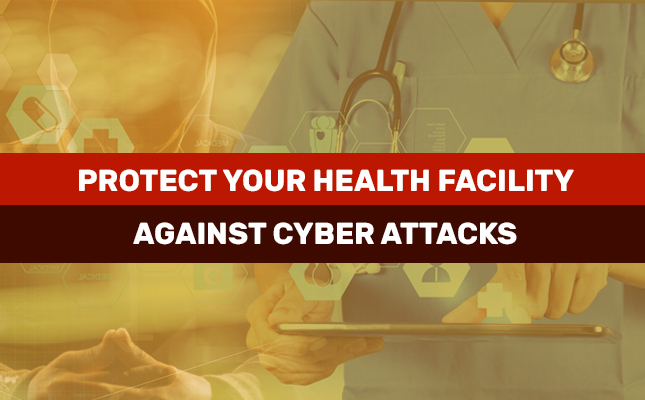Protect Your Health Facility Against Cyber Attacks

If you’ve been feeling like your medical practice is on the front lines and under fire, it’s more than just the radical changes in reimbursement and practice requirements. Your computer systems are increasingly the target of new regulations, and also the target of hackers who know that each change opens new vulnerabilities. We’ve got a story about a six-physician practice which saw the danger and took effective action.
You’ve heard about the price being paid by big hospitals and solo practices alike – data held for costly ransoms, patient personal and billing data sold to the highest bidder overseas, and legal liability that makes your malpractice exposure seem tame by comparison. It’s a new world, and it takes a new and comprehensive answer to keep data pirates from raiding your practice.
Think about this:
- You don’t know who’s out there, or what their capabilities are.
- You don’t know what’s valuable to them, and how they intend to get it.
- You can’t keep up with all the changes in your computer systems, and the vulnerabilities that might be introduced.
- You’ve read about how big corporations are falling prey to these people, at a cost of millions of dollars. Target, Home Depot, LinkedIn, JP Morgan Chase, Anthem…
- You can’t win this game with traditional tactics. To get the big picture, look at this infographic of breaches.
Recently, a Google researcher said that antivirus software is nearly useless. He recommended intrusion detection instead. Existing firewalls are the equivalent of nightclub bouncers – they look secure, but it’s easy to get around them. Just walk in the door with a flash drive or download from your mobile device to create a serious risk.
In the banking industry, reports show that it can take months to even notice that the thieves are in and stealing data. Most security tools watch the doors, not the data itself.
This is the stuff of nightmares, during a time when so much change is distracting healthcare organizations large and small from seeking protection. They’re busy upgrading for compliance, leaving doors open, even when they outsource and contract for services. Unless you use armored cars to move your data around, it’s exposed.
There are solutions, but a comprehensive answer to all of these data risks requires the work of some serious cyber security experts. Not surprisingly, those folks are in short supply these days.
Oasis Technology has put the essential skills of a cyber security expert into a unit that non-technical organizations can put to work (and technical companies love). It works in conjunction with your existing firewall and other protection. It gets in the face of your incoming and outgoing data, using its own horsepower, intelligence, and security know-how to protect you. It is called Titan.
Titan takes the front line security burden off of your systems, giving you faster computers and networks. It uses active, evolving processes to keep up with evolving attack strategies and, even better, it gets ahead of them. It catches activity and reports back to help identify new security risks. It uses creative defenses. It’s the kind of approach you’d expect from people who take data security seriously. It’s no wonder since Oasis invented Titan for their own protection.
Titan could make a difference for your healthcare team. San Fernando Valley Urological Associates (SFVUA) tried Titan and reported back results as part of this new healthcare case study. Learn how security experts worked for them, and can also work for you.
